Dr. Tamika Cross made headlines when she posted a troubling airplane encounter in a Facebook post: that she, a young black doctor, was turned away when she tried to provide medical care to a sick passenger.
“Oh no sweetie put [your] hand down, we are looking for actual physicians or nurses or some type of medical personnel,” Cross recalled a flight attendant telling her, before asking her for credentials and accepting help from a white physician. “Whether this was race, age, gender discrimination, it’s not right.”
She’s far from the only one. As Cross’s story went viral, more female doctors—many whom are women of color—shared stories of their own. “I identified myself as a physician and was pushed out of the way and told to step aside for a male RN to tend to the passenger,” wrote Dr. Amina Moghul, a doctor practicing family medicine. “I thought it was just me that had experienced this.”
Dr. Pamela Wible, a family physician (who herself has assisted in two in-air medical emergencies) began collecting stories like these. After posting about Cross’s experience, 50 female physicians messaged Wible with their own experiences. “I’m hearing from people who have airline stories, stories from motor vehicle accidents, stories from football fields, where the umpire didn’t believe a woman when she said she was a doctor,” Wible says. Sometimes, says Wible, dark-skinned women aren’t even recognized as doctors within their own hospitals, even when they’re wearing a white coat. “It’s our culture.”
Part of the challenge: only 2% of physicians in the U.S. are black women. “I have interviewed dozens of black women doctors,” wrote Crystal Emery, director of a new documentary called Black Women in Medicine, in a recent op-ed for TIME. “Time and time again they would share with me stories about how they were mistaken for home health aides or dietitians. People refused to believe a black woman could be a physician.”
Below are the stories from seven female physicians who say they experienced in-flight discrimination.
Catherine Harmon Toomer, MD: Family medicine
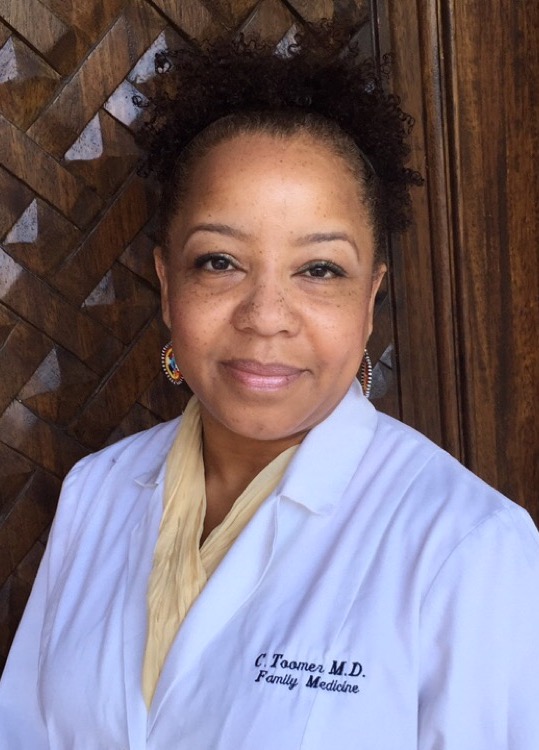
I was a practicing physician leaving Tampa on a flight to Atlanta after taking my family practice board examination, when an overhead announcement asked that if any physicians were on board to please proceed to the front of the plane. I was already in emergency medical mode when I arrived on the scene. I quickly introduced myself as a doctor, and without waiting for more of a response from the flight attendant than “really?” I got down on the floor face-to-face with a young woman in her twenties who was hyperventilating. I asked a quick succession of questions, was given clear answers and quickly determined she had a panic disorder, had her anxiolytic medication in her purse sitting next to her but hadn’t taken any. I had her take her medication first before proceeding, not wanting to assume that a panic attack was the problem. But before I could continue my assessment, two white women (who didn’t introduced themselves) knelt down on either side of the young woman and started peppering her with questions. When I asked who they were, the flight attendant pulled on my arm obviously wanting me to stand up, which I did, then proceeded to tell me the two women were nurses and that I could go back to my seat. I said no and turned back to the young woman on the floor. The flight attendant then said, more rudely, “Ma’am, please return to your seat.” “It’s Doctor,” I said, “and no.”
The patient, now having taken her Xanax and having become less symptomatic, thanked me and said she was feeling much better. The flight attendant thanked the nurses for their help, then smirked at me as if they were the reason she had recovered. I ignored the flight attendant and the nurses (who graciously stepped aside when they heard my refusal to leave) and went back to my seat only after eliminating the worst diagnoses and feeling comfortable that it was a situation of resolved urgency rather than an ongoing emergency.
I didn’t see the young woman again before she left the plane, but I walked past the captain and flight attendants as they shook the nurses’ hands and thanked them for their help, ignoring me as I disembarked. It didn’t bother me at that moment, since my mind was still on the young woman, hoping she was okay.
The nurses and I were about the same ages and all the same gender, so it wasn’t a stretch to think my treatment was due to my race. It wasn’t the first time my medical assistance was devalued or outright dismissed, and it wasn’t the last. And although it wasn’t said then that my attempted dismissal was due to my being black, it has been said quite blatantly and more than once in other medical situations. Even though my credentials and years of medical experience may not be accepted at face value in a future in-flight emergency, I still travel with a stethoscope in my carry-on bag ready to assist no matter the obstacles, because I am a physician, and that is who we are, and that is what we do.
Amina Moghul, DO: Family medicine
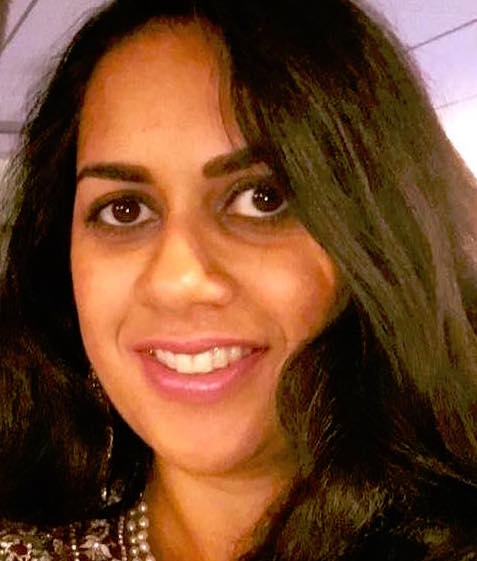
A patient syncopized (fainted) right next to my seat. I identified myself as a physician and was pushed out of the way and told to step aside for a male registered nurse (RN) to tend to the passenger. I was so stunned, I froze for a few seconds before politely introducing myself to the nurse as a physician and recommended we work together. The flight attendant continued to ignore me and direct questions and offers to get help or equipment to the male nurse. I thought it was just me that had experienced this…
Bernadette Anderson, MD: Family medicine
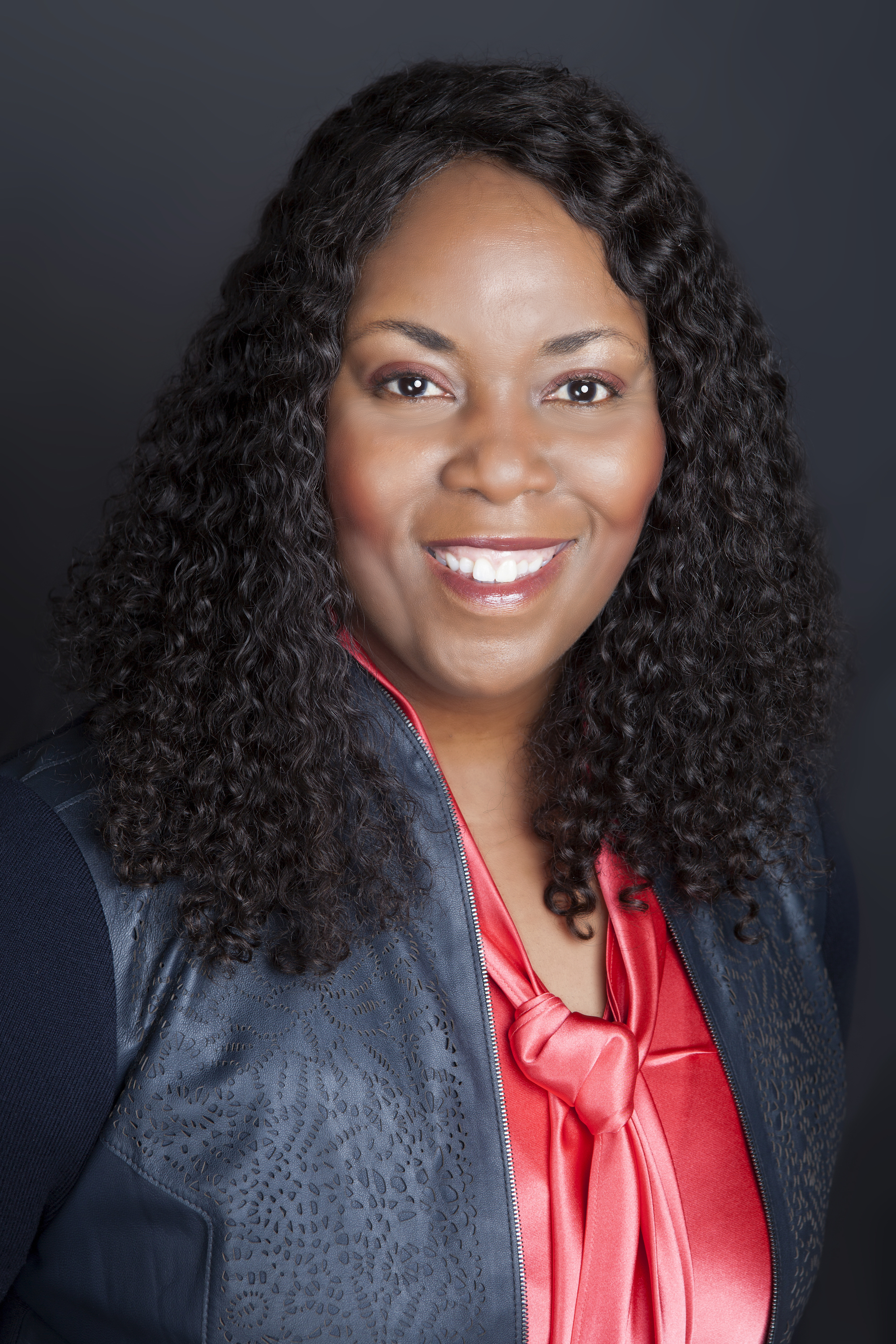
In August of 2009, I was traveling to Costa Rica. As the doors of the plane were closing, a passenger rushed onto the aircraft. Shortly afterwards, he had a near syncopal episode. The flight attendant asked if there was a physician on board to assist with the passenger. She made the announcement twice, at which time I approached the front of the plane where the passenger was located. She looked directly at me and inquired, “Are you a nurse?” I was confused by her question since she specifically requested a doctor, never a nurse.
I recall this incident so vividly because while I knew providing care for the gentleman was most important, I experienced such intense emotions. After completing four rigorous years of medical school, three grueling years of residency and exhaustive competency testing in the setting of being constantly disrespected, second-guessed and blatantly discriminated against, I still was not recognized as the doctor. What about me didn’t look like a doctor?
I asked her if she had called for a nurse, and it was at that point, as I saw from her facial expression, she realized the racial bias of her question. But, having been referred to as the housekeeper, social worker and medical assistant, maybe being acknowledged as nurse was a compliment. It was not received as such, however, since I am a doctor.
Mariam Anwar, MD: Internal medicine/geriatrics
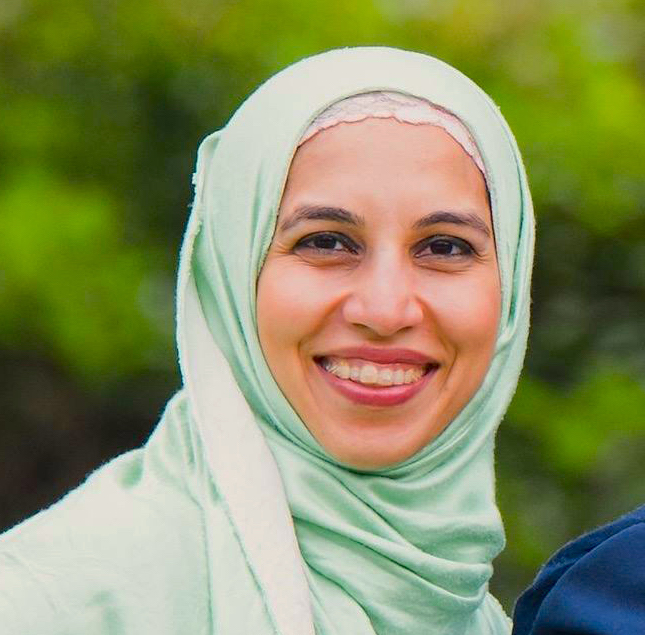
The flight manager asked for my credentials, wouldn’t let me help and let a white nurse help without asking for her credentials. Of course, I helped anyway. It was an elderly male with COPD exacerbation [emphysema] and hypoxic [shortness of oxygen] who was also having an anxiety attack. We had to calculate if we would have enough oxygen to last the trip without having to land…we would not make it if he needed more than baseline (5 L). The manager put him in business class and gave us seats too. We monitored him for several hours; he became unresponsive and hypertensive. I checked an EKG and glucose, and after several sternal rubs he woke up. Of course, I lost several hours of sleep on a long flight and a flight attendant had to take care of my toddler while I assisted him. When his shift was over, a manager came. He told me to go back to economy class, and he let the white nurse stay in business class the entire flight! Blatant discrimination and lack of respect!
Ashley Denmark, DO: Family medicine
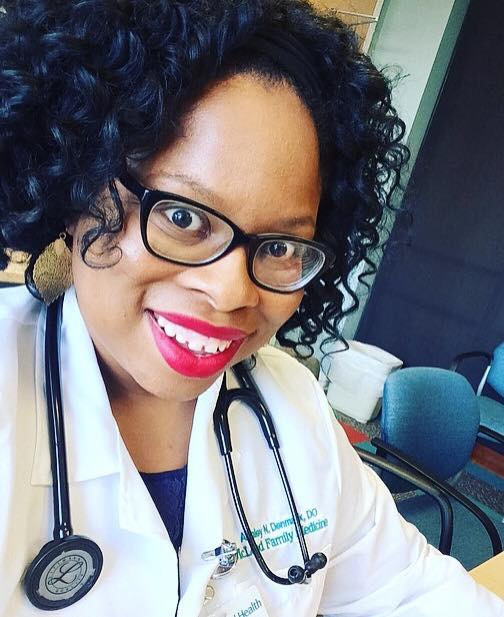
A flight attendant requested over the intercom for a doctor or nurse to report to the front of cabin to assist a passenger. Without hesitation, I made my way and was greeted by two Caucasian women and a flight attendant. I quickly asked, “What’s going on?” Then I stated, “I’m a doctor. How can I help?” Immediately, I was greeted by puzzled looks from all three women. The flight attendant asked, “Are you a doctor?” to which I replied “Yes.” My response only left a more puzzled look on the attendant’s face.
She turned around and began to talk to another flight attendant. I stood there in bewilderment because someone on the plane was in need of medical assistance and no one was escorting me to the passenger in need. Finally, one of the Caucasian passengers who came to assist spoke and stated that she and the other passenger present to assist were both nurses. Then she asked, “Are you a doctor?” to which I responded “Yes”…again. She immediately responded, “Well, you need credentials to show you are a medical professional.” I gave a funny look but remained composed and quickly quipped, “I have my hospital badge which should be enough.” The flight attendant continued to look puzzled then stated, “We have two nurses here who came first. You can have a seat now, and we will let them handle it. If we need more help, we will come and find you.”
As I walked back, I scanned the cabin. I looked for someone in distress or unresponsive, wondering who was this person who needed help. At that moment the gravity of the situation hit me like a ton of bricks. Apparently, the nurses and flight attendants didn’t think I was a doctor. Why else were nurses being allowed to take charge of a medical situation when a doctor was present? Surely it couldn’t be the color of my brown skin? So here I was, the doctor with 11 years of training being asked to take a seat and not partake in caring for the passenger in need. As an African American female physician, I am too familiar with this scenario. Despite overcoming and excelling academically and obtaining the title of Dr. in front of my name, I still get side-eye glances when I introduce myself as Dr. Denmark. Commonly, I’m mistaken for an assistant, janitor, secretary, nurse or student, even when I have my white coat on.
Salma Elfaki, MD: Pediatrics
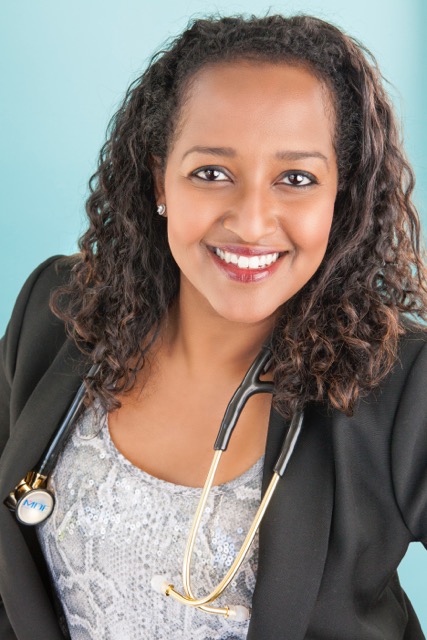
In 2012, I experienced the same thing as Dr. Tamika Cross on a transatlantic flight. The flight attendant dismissed me initially and asked me to sit back at my seat because they needed a real doctor. At that point a black male acquaintance of mine (also a doctor) was being escorted back to the patient. He called me across the aisle to come help him. The flight attendant appeared shocked. She confirmed with him that I am indeed a doctor. He told her, “She’s a pediatrician and a very good one.” He proceeded to examine the patient and I requested their medical kit. Once I received it I got to work to see what I could use and took it from there with my colleague, an adult cardiologist. We were both able to work together and help the patient. They didn’t ask me for credentials, but clearly had to take a man’s word for it!
Trupti Shah, MD: Emergency medicine
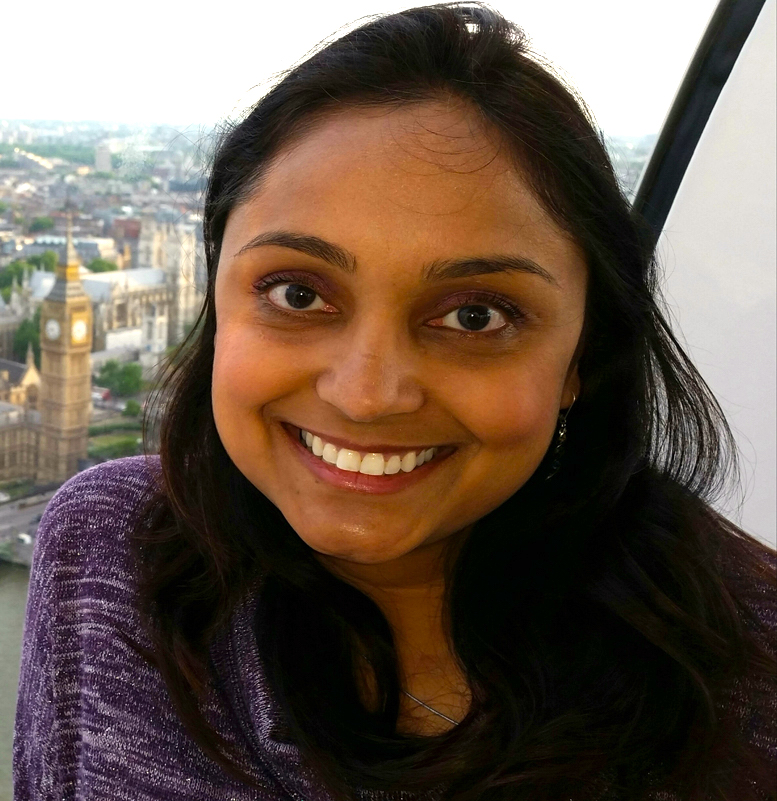
On a flight from Cairo to JFK, the lady seated in front of me was having difficulty breathing. I heard the commotion but did not understand the conversation since it was in Arabic. I asked if I could help and identified myself as a doctor. I was told by the male head flight attendant to sit down. They then made an announcement overhead asking for medical help. I got up again but was ignored.
A male cardiologist from New York who was fluent in Arabic offered assistance and was immediately ushered to the woman. He noticed that I was trying to help but was not allowed. While they went to get him the medical kit on board, we spoke. He had trained at my hospital. As soon as he was handed the medical kit, he immediately gave it to me, but the flight attendant tried to take it back. He had to intervene in order for me to help the woman; he translated.
The woman had started taking amoxicillin given to her for a sore throat and developed a rash, itchy throat and shortness of breath. I checked her blood pressure and lungs. Then I gave her prednisone, Benadryl and Pepcid from my carry-on (all of which I carry with me when I travel abroad). She felt better after 30 minutes. An hour later, the meals were served. I had reserved a vegetarian meal, but when I requested it, the same male flight attendant told me that ‘you people always lie.’ He argued and refused to believe me. He asked for proof, and I showed him my printed flight itinerary. He then brought me a completely burnt tray.
More Must-Reads from TIME
- Donald Trump Is TIME's 2024 Person of the Year
- Why We Chose Trump as Person of the Year
- Is Intermittent Fasting Good or Bad for You?
- The 100 Must-Read Books of 2024
- The 20 Best Christmas TV Episodes
- Column: If Optimism Feels Ridiculous Now, Try Hope
- The Future of Climate Action Is Trade Policy
- Merle Bombardieri Is Helping People Make the Baby Decision
Write to Mandy Oaklander at mandy.oaklander@time.com